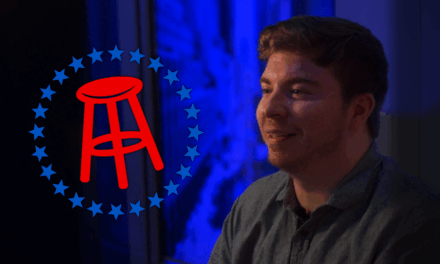In a bold move that has captured the attention of both tech enthusiasts and media analysts, a co-founder of Wikipedia has made a public appeal to Elon Musk. This call to action centers on a growing concern regarding the influence of governmental bodies over the operations and content of the online encyclopedia. As digital platforms continue to evolve, the implications of government interaction with these systems raise essential questions about transparency, neutrality, and the integrity of information.
Wikipedia, founded in 2001 by Jimmy Wales and Larry Sanger, was designed as a freely accessible repository of knowledge. It prides itself on its collaborative editing model, which allows individuals from around the world to contribute to and update articles on various topics. This model has been both a strength and a vulnerability, introducing challenges related to information accuracy and bias.
The issue of government influence is complex, as many countries have expressed interest in regulating online content to combat misinformation and ensure platform accountability. However, such regulation risks infringing upon the foundational principles of Wikipedia, which relies on a neutral point of view and the open contribution of users.
In recent statements, the co-founder has highlighted that certain edits to Wikipedia articles may reflect attempts to shape narratives favorable to governmental agencies. While the platform operates under a set of guidelines striving for unbiased representation, the interventions that originate from organized interests – including government entities – necessitate scrutiny.
Elon Musk, known for his significant influence across various spheres, particularly through his leadership at Tesla and SpaceX, has also made substantial waves in the realm of social media since acquiring Twitter in late 2022. His tenure at Twitter has ignited dialogue around the role of misinformation and the ethical responsibilities of social media platforms. Musk’s interest in transparency within digital ecosystems presents a potentially unique opportunity for addressing the concerns raised by the Wikipedia co-founder.
As misinformation campaigns proliferate online, with attempts to alter public perception on critical issues like health, politics, and climate change, the vigilance surrounding the integrity of knowledge sources has never been more crucial. Wikipedia, often the first stop for individuals seeking factual information, finds itself at the intersection of these challenges. The co-founder argues that it is imperative for figures like Musk to leverage their platform to advocate for more open policies regarding the oversight and operational integrity of platforms like Wikipedia.
The implications of government influence extend beyond Wikipedia and touch upon experiences encountered by other digital platforms that face similar scenarios. Social media sites have been criticized for their roles in the spread of disinformation, prompting lawmakers to contemplate legislative measures. While some argue that these actions are necessary to protect users, critics assert that such interventions risk creating a chilling effect on free speech and undermine user trust.
In his appeal, the Wikipedia co-founder highlighted the importance of fostering an environment where information can be shared freely and where contributors can feel confident that their input is not being altered or suppressed by outside parties. Maintaining Wikipedia’s integrity means ensuring that the information remains untainted by governmental agendas or pressures.
Moreover, there are potential solutions the co-founder suggests for mitigating the risks associated with external influence. One is promoting greater transparency in how articles are edited, especially those related to political or controversial subjects. This could involve flagging edits that originate from accounts affiliated with governmental organizations or noted political figures. By identifying the sources of information edits clearly, users of Wikipedia could better assess the reliability of the content presented to them.
Another suggestion is for Wikipedia to adopt more robust verification processes for information pertaining to sensitive topics. Currently, anyone can edit Wikipedia, which includes the possibility of introducing biased or incorrect information. Although the community of editors actively works to correct misinformation, a system that emphasizes expert oversight could safeguard against problematic entries infiltrating the platform.
Furthermore, the co-founder proposes utilizing advanced technologies, including artificial intelligence and machine learning, to flag potentially biased content or identify patterns of alteration from known government entities. As online platforms become increasingly reliant on sophisticated algorithms, harnessing such technology for quality control can aid in preserving the encyclopedia’s integrity while balancing the need for free information exchange.
The crux of the matter is rarely simple; navigating the thin line between regulation and autonomy is a challenge that can produce contention between users, governments, and digital platforms alike. The struggle to find a balance hinges on the principles of democracy, where citizens should have access to unfettered, accurate information without succumbing to the manipulation of narratives or facts dictated by those in power.
While the call to examine the government’s impact on Wikipedia may feel like a singular issue, it is emblematic of the broader discourse surrounding online knowledge and its stewardship. As awareness of these challenges grows, finding allies in influential figures like Musk could help reshape conversations around transparency and governmental influence on digital platforms.
Understanding that the implications of this debate may ripple beyond Wikipedia into other areas of online discourse is vital. If platforms like Wikipedia are compromised by the influence of biased information, it can fundamentally alter how society understands not just the past, but the present as well. This brings to light the gravity of the conversation initiated by the Wikipedia co-founder and highlights why it deserves serious attention and action.
As industry leaders, activists, and everyday individuals consider how best to move forward, it is clear that the dialogue surrounding government influence on media and information platforms will continue to develop. The outcomes of such discussions will likely have lasting impacts not only on Wikipedia but across the entirety of the Internet as users seek platforms that foster genuine exchange of information free from coercive influences.
Thus, the discourse should not end with a generalized appeal but should stimulate more profound discussions and initiatives aimed at reinforcing accountability and neutral knowledge dissemination on digital platforms. The expertise of individuals like Musk could indeed contribute towards solutions, aiding Wikipedia to maintain its status as a trusted source in the ever-evolving landscape of information sharing.
































